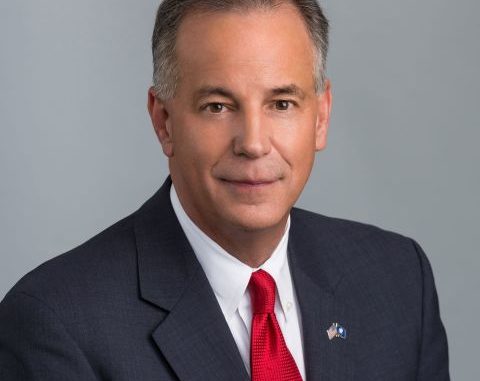
Editor’s Note: Early voting for the Oct. 24 Louisiana gubernatorial election is going on now at parish registrar of voters offices through this Saturday, Oct. 17.
Four major candidates are vying to replace Gov. Bobby Jindal: Republicans Scott Angelle, Jay Dardenne and David Vitter, and Democrat John Bel Edwards.
Louisiana Sportsman magazine asked each candidate to answer some basic questions about how their administration would approach outdoor issues, ranging from the Louisiana Department of Wildlife and Fisheries to coastal erosion.
We will run each candidate’s responses online this week, starting alphabetically with Scott Angelle.
No matter who you ultimately select, please make sure to go out and vote.
Scott Angelle, Republican
Current position: Louisiana Public Service Commission member
Q: Are you an outdoorsman? If so, what’s your favorite species to hunt/fish? What’s the largest fish you’ve caught or deer you’ve killed?
A: I learned at an early age the value of Louisiana’s abundant natural resources. I have always been an avid sportsman. Fishing and hunting are part of my family’s way of life and are some of our favorite pastimes.
I love hunting all breeds of duck. I enjoy fishing for bream in freshwater and speckled trout in saltwater.
The largest fish I have caught is a lemonfish. The largest deer I have ever killed was an 8-point buck at Whiskey Bay.
The outdoors always provides me with comfort and a sense of what it means to be a true Louisianian. Our state is a beautiful place, and we must appreciate all that the land has to offer.
Q: What are your thoughts on choosing a secretary for the Louisiana Department of Wildlife and Fisheries? Should the secretary be a biologist? Should he/she be from Louisiana? What qualifications will you look for?
A: My father served as secretary of the Louisiana Department of Wildlife and Fisheries, so I am intimately familiar with the knowledge, experience and skills it takes to successfully run the agency. In deciding who to nominate for the position, I will make sure to take into account all of the person’s qualifications, including their expertise in biology, environmental science, coastal restoration, etc.
But, it is also important to make sure this person has a proven track record of effectively working with people.
The challenges facing Louisiana’s environment vary widely, from economic issues and budgeting to the rapid degradation of our coast due to rising sea levels and hurricanes. The person who is appointed to head (LDWF) has to be able to work with people from all walks of life and all areas.
That person will have to work with representatives of government, industry and the science community to solve these problems.
The person I would select would, most importantly, be able to bring all of these people to the table and work out real solutions that work for Louisiana.
Q: What do you see as the primary role of the Louisiana Department of Wildlife and Fisheries?
A: The primary role of the Louisiana Department of Wildlife and Fisheries is reflected in the organization’s mission statement: “To manage, conserve, and promote wise utilization of Louisiana’s renewable fish and wildlife resources and their supporting habitats through replenishment, protection, enhancement, research, development and education for the social and economic benefit of current and future generations; to provide opportunities for knowledge of and use and enjoyment of these resources; and to promote a safe and healthy environment for the users of the resources.”
The overall role of the Louisiana Department of Wildlife and Fisheries is to promote Louisiana for the true Sportsman’s Paradise that it is and ensure that it is conserved for future generations.
Louisiana is a place where people come together to celebrate the outdoors and the vast natural resources of our state. The department also must market and promote this industry.
Q: The Louisiana Department of Wildlife and Fisheries is largely self sufficient, receiving little, if any, state General Fund money. Do you think that is the best formula? Do you support General Funds being sent to the agency? Why or why not?
A: In 2014, hunting and fishing licenses generated almost $30 million in tax collections. That number has increased steadily since 2010. (The LDWF) has been the picture of a financially responsible agency, receiving no direct funds from the state general fund and operating with a relatively low budget.
This funding model has worked and been beneficial to (LDWF); there is no doubt that (LDWF) has been a good steward of their monies.
I will be a governor who tackles that project and get Louisiana’s budget under control. We should all be able to agree that there is a structural budget problem in Louisiana when we have our highest state gross domestic product and our highest non-farm employment in our history, yet we still had a $1.6 billion deficit.
Our problem is that we are relying on an outdated, failed system of taxation and budgeting.
First, I will call a special session to address comprehensive tax reform. I will immediately work toward reforms to enact a fair, transparent, competitive tax code and to allow state leaders to create a balanced, sustainable budget that reflects the priorities of the people of Louisiana.
Second, we must reform our antiquated budgeting process.
If we do these things, we can ensure that we don’t have to raid (LDWF) funds and may be able to direct some general fund dollars to the agency.
Q: As you may know, Gov. Bobby Jindal’s administration raided many constitutionally dedicated funds, including the LDWF’s Rigs to Reef Program, in his attempts to balance the budget. Do you support such moves? Would you push to return the $27 million taken from the Rigs to Reef Program?
A: I do not support the process of raiding programs to compensate for budget deficits. I echo the sentiments of the people of Louisiana who voted to constitutionally protect the Rigs to Reefs program. When the people of Louisiana speak through a vote it is our duty and obligation to carry out that decision.
It is my hope that, once our fiscal house is in order, we can return the $27 million dollars that was swept from the Rigs to Reef Program.
Q: Coastal erosion is one of the most-pressing environmental issues facing this state. How would you prioritize work to stabilize the fragile marshes along the coast, and what would be your first step in this area if you are elected governor?
A: First, no one in this race has demonstrated more leadership in helping to restore coastal Louisiana than I have. In 2006, I was part of a generation that passed a constitutional amendment that linked coastal restoration with offshore royalties.
Under my leadership, we also established the Coastal Protection and Restoration Authority (CPRA), which has revolutionized the way we prioritize the value of the coast.
I would defer to the science-based Coastal Master Plan, as well as experts from CPRA, the Water Institute, academia, authors of the Master Plan, (non-governmental organizations), local officials and user groups to prioritize projects for stabilizing our state’s marshes.
I also believe that we must demonstrate to the nation that we are capable of managing our affairs as we embark on the world’s largest public works project.
My first action with respect to coastal restoration will be to ask the Legislature to adopt strict laws that seek to criminalize at the felony level with jail time required … misappropriation or misuse of any monies — state and local — from any source intended for coastal restoration and hurricane protection.
I will reauthorize the executive order that requires all state agencies, their regulatory practices, programs, contracts, grants and all other functions vested in them to be performed in a manner consistent with the state’s Coastal Master Plan to the maximum extent possible.
Under my administration, we will create a world center of excellence for ecosystem restoration. For every place on the planet that seeks to solve their own problems, they are going to come to Louisiana.
We will not only save our own coast and state, we will have the ability to export those talents.
Click here to read editor Andy Crawford’s editorial on the gubernatorial election.


